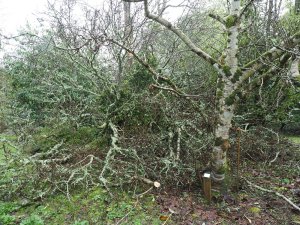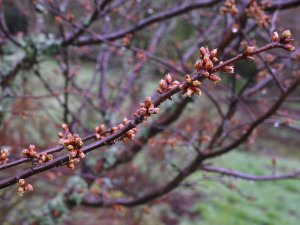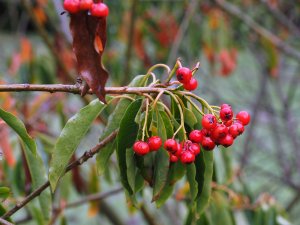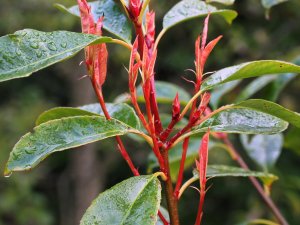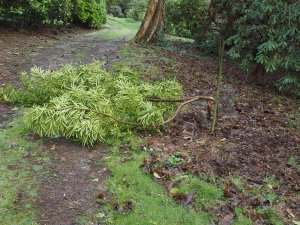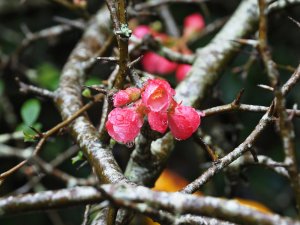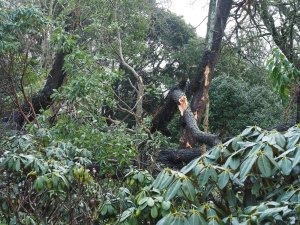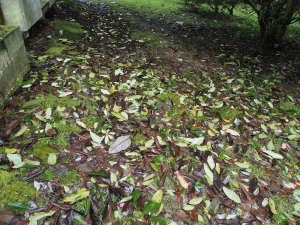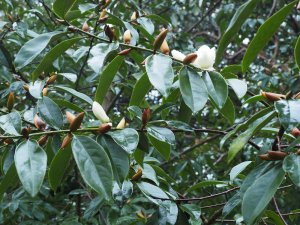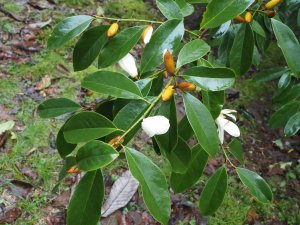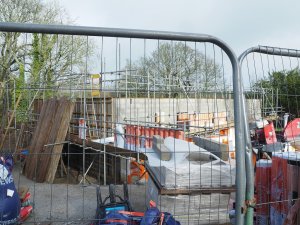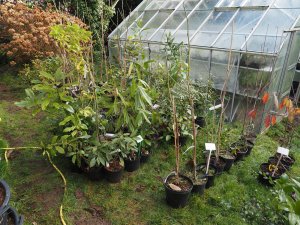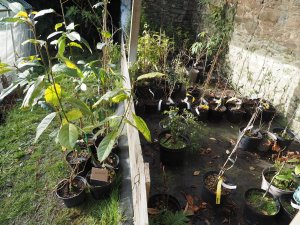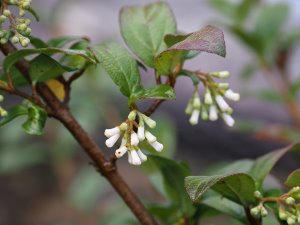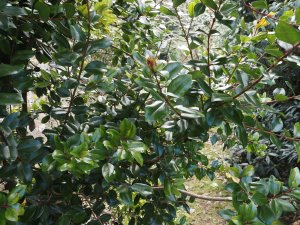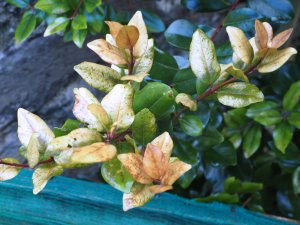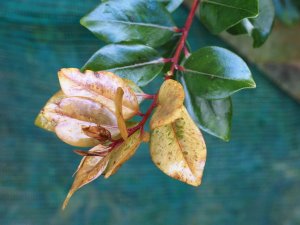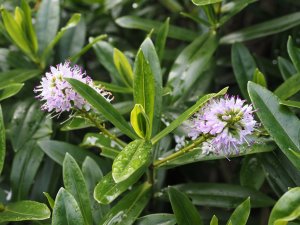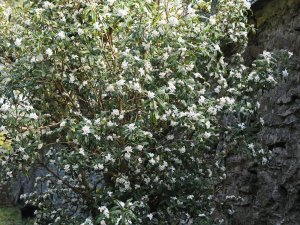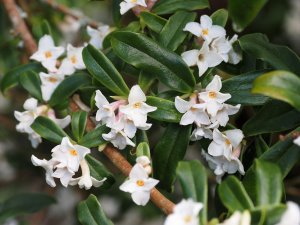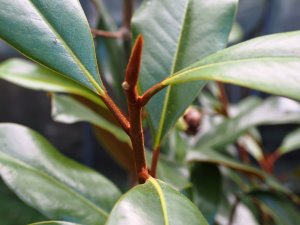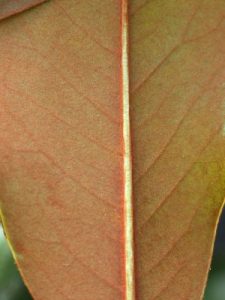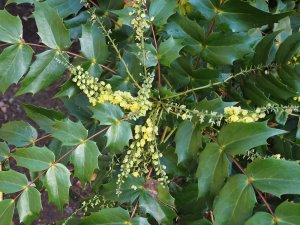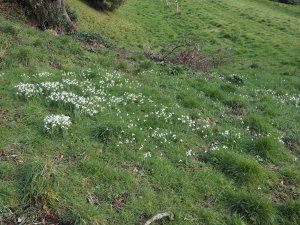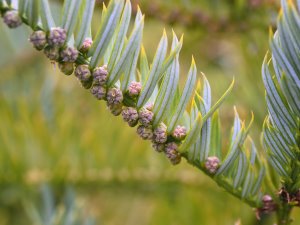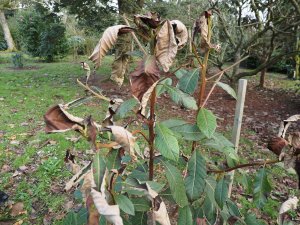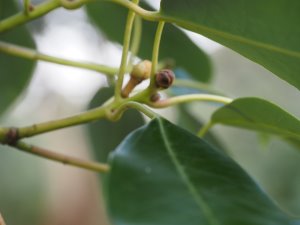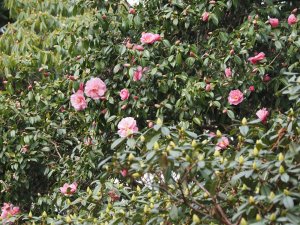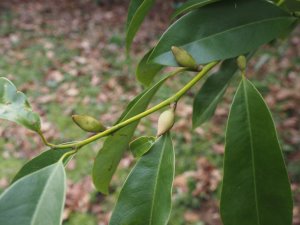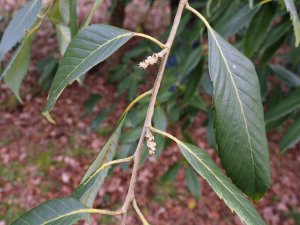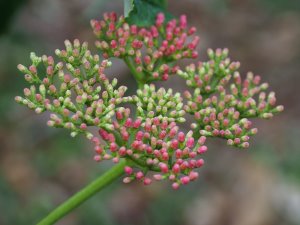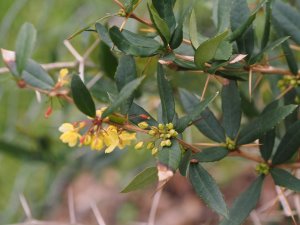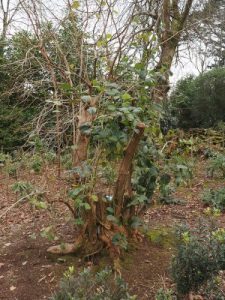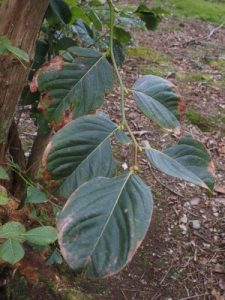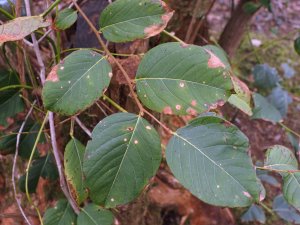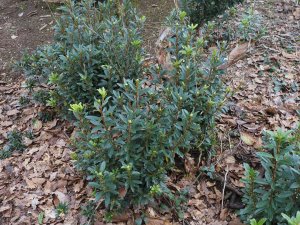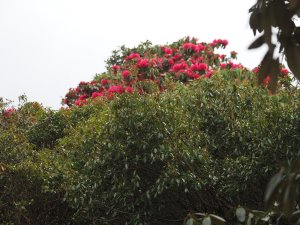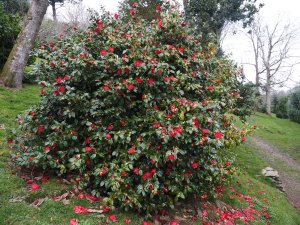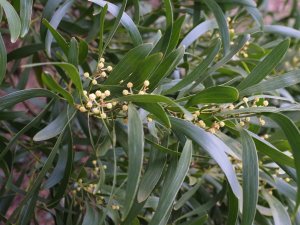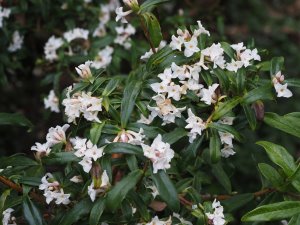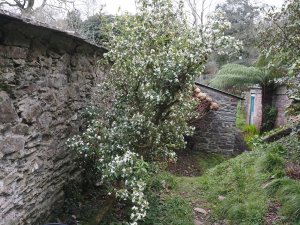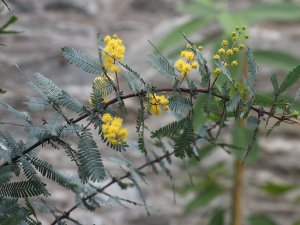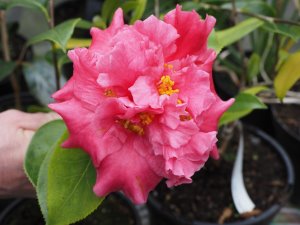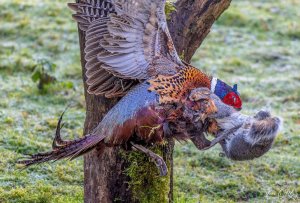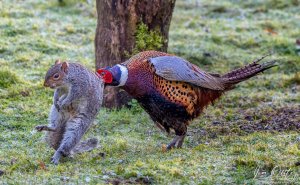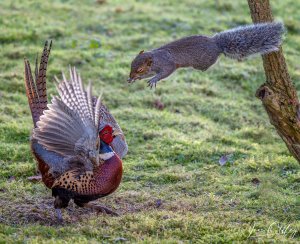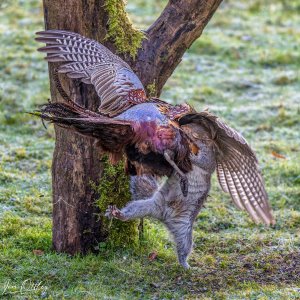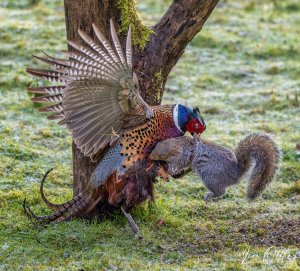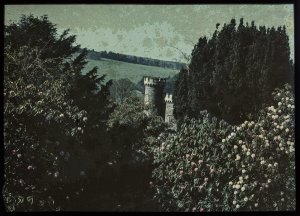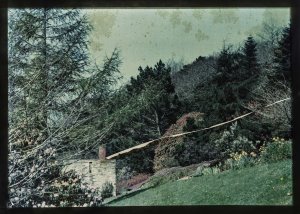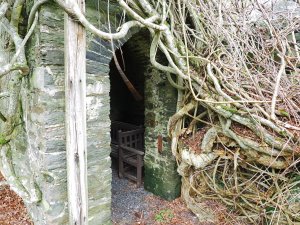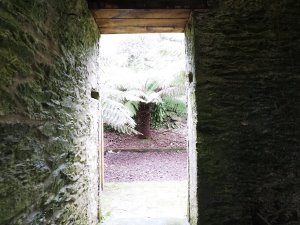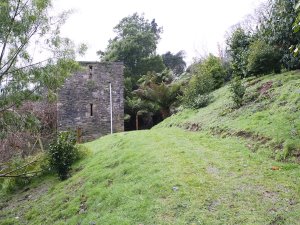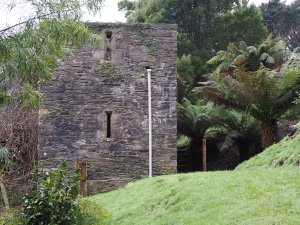2026 – CHW
I do not think we can open the gardens until 2nd March.
Wild daffodils on the drive amid the carnage.
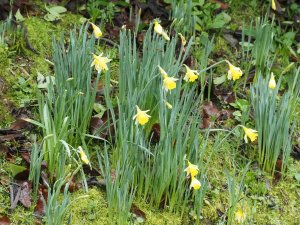
A Magnolia ‘Dr Merrill’ smashed in half by an oak limb.
Prunus ‘Kursar’ still not quite out.
Leaves and berries survive on Photinia niitakayamensis.
New growth already on Photinia lasiogyna.
A Podocarpus snapped in the storms in the last few days.
Chaenomeles in flower.
Magnolia virginiana ‘Satellite’ crushed by a fir.
Leaves blown off evergreens by George’s Hut.
Magnolia ‘Fairy White’ is out.
Building work on the swimming pool delayed by blocked access and wet weather.
2025 – CHW
2024 – CHW
An hour with Karol and Asia picking out the next piles of plants for planting out this spring in various different locations.
An hour with Karol and Asia picking out the next piles of plants for planting out this spring in various different locations.
Some of the outside beds are now looking a bit thin and empty but there are plenty of smaller things to pot on which will quickly fill the space. I prefer not to plant out more tender things, and especially evergreens, in the autumn.
Viburnum taitoense with flowers nearly open. Rather a pretty and good value now.
The large Metrosideros robusta planted out on a wall 5 or so years ago by the greenhouses has taken some minor frost damage but, in reality, very little. When I was a child a large Metrosideros grew exactly here but it died in a cold winter mid-1970’s or thereabouts. Outside Tresco and the Penzance area one of the very few Metrosideros to have achieved maturity in the UK.
Hebe ‘Wiri Image’ in flower (and these are the very last flowers) in a large pot outside the greenhouse.
Our original Daphne bholua on the top wall is at its very best.
Magnolia grandiflora ‘Bracken’s Brown Beauty’ is a new one to us and destined to go be planted now in Kennel Close.
Mahonia japonica nearly over in full shade by the greenhouse frames.
The snowdrops moved from The Vean are half full out. The other half were planted to deeply 12 years ago and are only now emerging in bud.
2023 – CHW
The male form Cephalotaxus fortunei with pollen buds ready to burst.
The male form Cephalotaxus fortunei with pollen buds ready to burst.
Clethra mexicana with frost damage.
Flower buds showing up well on Rhodoleia aff. parvipetala.
Camellia x williamsii ‘Donation’ just into flower – later than usual?
Flower buds aplenty on Magnolia ernestii.
Flower tassels forming on Quercus kiukiangensis for the first time as far as I have noticed.
Viburnum taiwanianum nearly out.
First flowers on the newly planted Berberis kawakamii.
2022 – CHW
Vlogs about our opening to do tomorrow.
Lyonia ovalifolia is half evergreen. Here you still see leaves on the younger new growth on this small tree which is recovering after being hit by a beech tree twice since 2016.
An elderly clump of Rhododendron formosum is rejuvenating well from the base also in Higher Quarry Nursery beside the Lyonia. It too was crushed by the same beech trees and I had thought the plants too elderly to regenerate. ‘Smellies’ do regenerate well when cut back but not in extreme old age (i.e. 50 years plus).
Rhododendron arboreum subsp. delavayi full out high up above the Main Quarry. This original clump is seriously over mature and we must collect seed.
Camellia ‘Bokuhan’ full out by the Playhouse. It will be over by the time we open in only a fortnight.
Acacia melanoxylon nearly out in flower – two huge trees on from the Old Playhouse.
The oldest Daphne bholua ‘Alba’ on the wall by the greenhouse is full out and scenting everything. Its oldest branches have ‘clubfoot’ or fasciation (i.e. flattened and chubby stems).
In the frames Acacia baileyana ‘Purpurea’ is now out and ready to plant out in our acacia area. This variety grew here since 1990 but was killed in a cold winter.
Camellia reticulata ‘Arch of Triumph’ out in the greenhouse – a sort of double or even treble flower. Good to see Asia propagating these difficult named forms of reticulata without the need to graft them. A long time in the mist bench.
I have been sent these five photographs of a grey squirrel fighting with a cock pheasant in Suffolk! Incredible but not clear quite who inflicted the most damage on whom? Have I seen this before? Perhaps?
Going around the garden today I am strangely stuck on plant names which I know perfectly well. After having hosted nearly 90 days shooting here (and 1,200 to 1,300 people) since last September and still kept this diary going the February brain can now readjust to the spring season. A couple of days more and the ‘grey matter’ will produce a plant name for me before I have to even think about it. Happy days are here again! Spring is already here in Cornwall but we all fear a cold snap – especially in the March magnolia season
2021 – CHW
An interesting little bit of our garden history and a nice puzzle!We received an enquiry from Pam Hayward about the two attached photographs which were taken in very early colour and which are in the collection of an amateur photographer called Hugh Charles Knowles which is housed at the V&A Museum. The collection contains pictures of gardens and rhododendrons.Both these pictures were actually taken by Lionel de Rothschild of Exbury between 1907 and 1914. The Caerhays visitors’ book records five of Lionel’s visits here between March 1921 and April 1935 but nothing earlier. Perhaps he actually stayed nearby; say at Heligan?Anyway one of the two pictures is very clearly Caerhays. It is interesting to see the shelterbelt at the top of the old deer park only just established. The pink and white Rhododendron arboreums featured are still (exactly) there now in extreme old age. The Irish yew is not and neither is the enormous Virginia creeper to be seen on the main tower which I remember being cut down and removed as a child. The Magnolia grandiflora clump was also there until about 30 years ago when it nearly died in a cold winter.
An interesting little bit of our garden history and a nice puzzle!We received an enquiry from Pam Hayward about the two attached photographs which were taken in very early colour and which are in the collection of an amateur photographer called Hugh Charles Knowles which is housed at the V&A Museum. The collection contains pictures of gardens and rhododendrons.Both these pictures were actually taken by Lionel de Rothschild of Exbury between 1907 and 1914. The Caerhays visitors’ book records five of Lionel’s visits here between March 1921 and April 1935 but nothing earlier. Perhaps he actually stayed nearby; say at Heligan?Anyway one of the two pictures is very clearly Caerhays. It is interesting to see the shelterbelt at the top of the old deer park only just established. The pink and white Rhododendron arboreums featured are still (exactly) there now in extreme old age. The Irish yew is not and neither is the enormous Virginia creeper to be seen on the main tower which I remember being cut down and removed as a child. The Magnolia grandiflora clump was also there until about 30 years ago when it nearly died in a cold winter.
The second photograph made me stop and think. There is a stone building leading into the garden at the top of the bank very like this beside the site of the old wooden playhouse. The path does curve along the ridge where the green seat is seen in the picture. However, as this photograph, taken today, shows it is not quite right. The stone building has two slit windows rather than the one shown here. There is also no brick chimney stack and absolutely no evidence of a fireplace within the small building itself. You can just see the roof of a wooden building beside the stone one but this is low to the ground. The old playhouse roof was slated with a central ridge. The tree cover is not right either. No cedar tree (or is it a larch?) and no Pinus insignis. The background trees here were, until very recently, all mature beech. No Rhododendron ‘Cornish Red’ here either although there are other elderly clumps not far away.
The current pictures of the same thing are here.
So it is quite close to what this bit of the garden might have looked like circa 100 to 110 years ago but I do not think it actually is Caerhays. The absence of a second slit window in what was originally a Jacobean watch house built by the Trevanions is probably a clincher unless you believe it is obscured by the Rhododendron arboreum flowers? Personally I do not think this quite works. However please see the following entry for 3rd February 2021.




